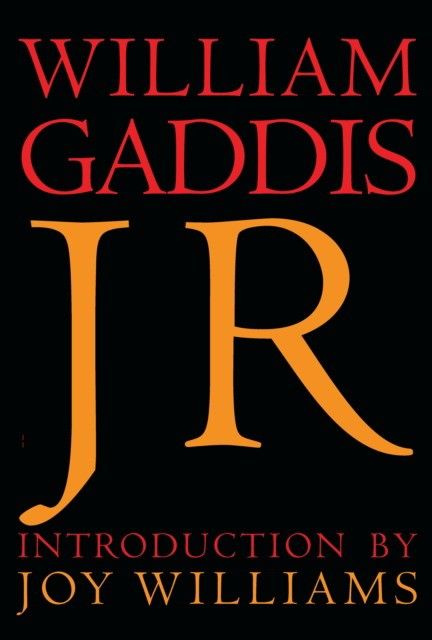- Книги
- Литература на иностранных языках
- Английский язык
- Художественная литература

−40%
Рассрочка 0-0-6
Цена что надо
Тип книги:
О товаре
Перейти к описанию
Издательство
Год выпуска
2020
Тип обложки
Мягкая обложка
Тип книги
Книга на иностранном языке
Язык издания
Английский
О книге
A National Book Award-winning satire about the unchecked power of American capitalism, written more than three decades before the 2008 financial crisis. At the center of J R is J R Vansant, a very ave
13 965 ₸ 23 301 ₸
Часто задаваемые вопросы
Описание
A National Book Award-winning satire about the unchecked power of American capitalism, written more than three decades before the 2008 financial crisis. At the center of J R is J R Vansant, a very average sixth grader from Long Island with torn sneakers, a runny nose, and a juvenile fascination with junk mail get-rich-quick offers. Responding to one, he sees a small return; soon, he is a running a massive Ponzi scheme out a phone booth in the school hallway. Everyone from the school staff to the municipal government to the squabbling heirs of a player piano company to the titans of Wall Street and the politicians in Washington will be caught up in the J R Company, an endlessly ballooning bubble that encompasses shaky mineral claims and gas leases, defense contracts, a string of nursing homes cum funeral parlors, matchbooks, marijuana, prostheses, publishing, and even a formula for frozen music. First published in 1975, J R is an appallingly funny and all-too-prophetic depiction of America's romance with finance and its disastrous consequences. It is also a book about suburban development and urban decay, divorce proceedings and disputed wills, the crumbling facade of Western civilization and the impossible demands of love and art, with characters ranging from the earnest young composer Edward Bast, who inadvertently finds himself the public face of the J R company, to the berserk publicist Davidoff, whose unceasing output of hype and spin and buzz make him one of the great grotesques of modern fiction. Told almost entirely through dialogue, Gaddis's novel is a story of compounding misunderstandings, at once absurd and desperate. It is both a literary tour-de-force and an unsurpassed reckoning with the way we live now.
Автор на обложке
Gaddis, William
- Артикул
- 1556293656
- Издательство
- Random House USA
- Год выпуска
- 2020
- Тип обложки
- Мягкая обложка
- Тип книги
- Книга на иностранном языке
- Язык издания
- Английский
- Количество страниц
- 784
- Размеры, мм
- 140x211x43
- Вес товара, г
- 861
- ISBN
- 9781681374680
- Основной жанр книги
- Художественная литература
Подборки товаров в категории Художественная литература на английском языке
Отзывы о товаре
0
J R
Нет оценок
Вопросы и ответы 0
Как правильно задавать вопросы?
Будьте вежливы и спрашивайте о товаре, на карточке которого вы находитесь
Если вы обнаружили ошибку в описанием товара, воспользуйтесь функцией
Как отвечать на вопросы?
Отвечать на вопросы могут клиенты, купившие товар, и официальные представители.
Выбрать «Лучший ответ» может только автор вопроса, если именно этот ответ ему помог.


